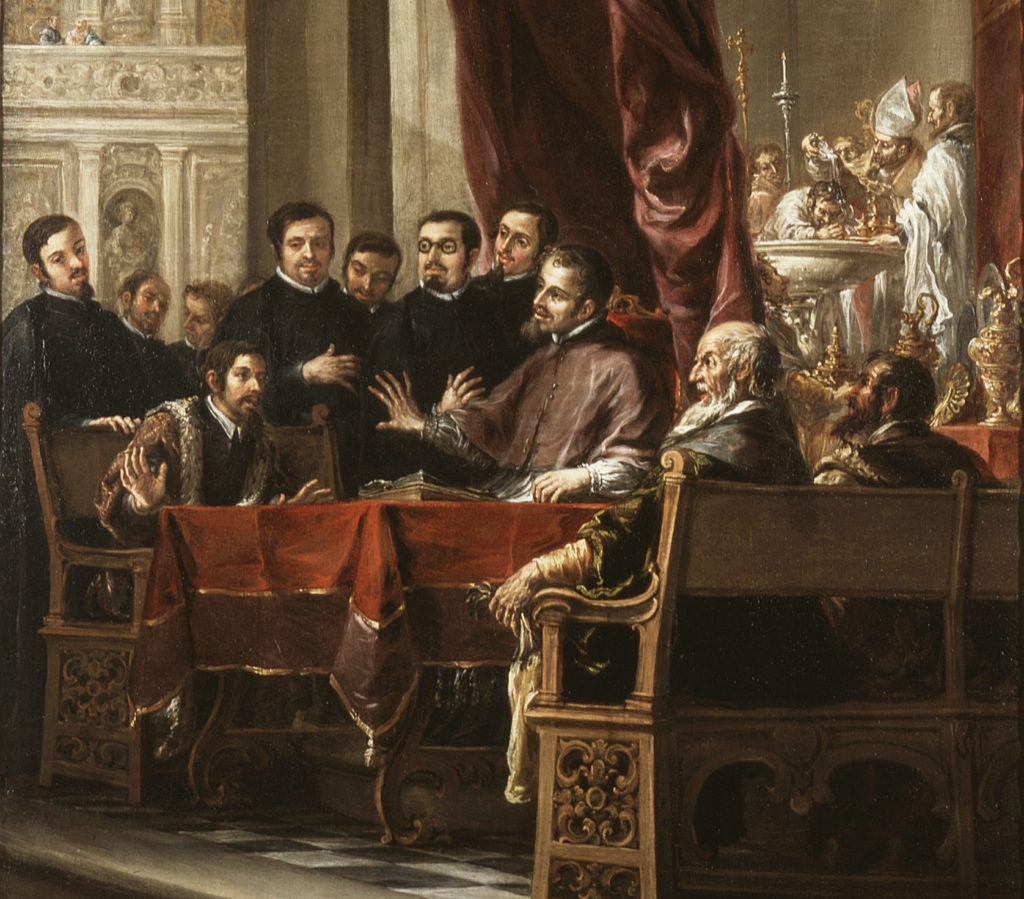In the coming month we’ll mark the feast of St. Augustine. His life and work serve as a capstone of late antiquity and the foundation of medieval culture. So his conversion marks more than a personal milestone. It’s a turning point in the history of ideas.
In his “Confessions,” Augustine describes the high point of his professional life. He had been appointed professor of rhetoric at the emperor’s court, the most prestigious academic position in the Latin world.
Though accompanied by his mother, Monica, Augustine had long since abandoned the Christian faith in which he was raised. He dabbled in Manichaeism, an esoteric eastern religion. He read the pagan neo-Platonists.
The Christian Scriptures, however — and especially the Old Testament — he found primitive and offensive. “I was quite uninterested in the subject-matter,” he recalled, “and was even contemptuous of it.”
In Milan he was attracted not to Christianity, but to the reputation of the great bishop, St. Ambrose. Ambrose had served as governor of the empire’s de facto capital before he was made bishop by acclamation of the people. He was a man of formidable intellectual and rhetorical skills.
Augustine recalls that Ambrose’s renown extended “throughout the world,” and the young scholar determined “to judge for myself whether the reports of his powers as a speaker were accurate.”
He was surprised at what he found. He was attracted first by Ambrose’s warmth and humility. Then, unexpectedly, he found himself drawn by Ambrose’s teaching: “every Sunday I listened as he preached the word of truth to the people, and I grew more and more certain that it was possible to unravel the tangle woven by those who had deceived both me and others with their cunning lies against the Holy Scriptures.”
Gradually he discovered that he had judged the Scriptures unfairly, misunderstanding their genres and the Church’s interpretive methods. Ambrose’s preaching showed him “how to interpret the ancient Scriptures of the law and the prophets in a different light from that which had previously made them seem absurd.”
A worldly intellectual who once sneered at the boorish rusticity of the Old Testament, Augustine soon came to profess that “the Scriptures were delivered to mankind by the Spirit of the one true God who can tell no lie.” Moreover, he held that “it was precisely this,” and not any fine points of philosophy, that he “most needed to believe.”
What he had previously judged to be absurd stories, he now regarded as “profound mysteries.” He concluded that “the authority of Scripture should be respected and accepted with the purest faith, because while all can read it with ease, it also has a deeper meaning in which its great secrets are locked away.”
At first attracted by the humble warmth of Ambrose, Augustine was converted by the profound humility of God, who cloaked his divine word in such homely attire — all so that he might draw “so great a throng in the embrace of its holy humility.”

